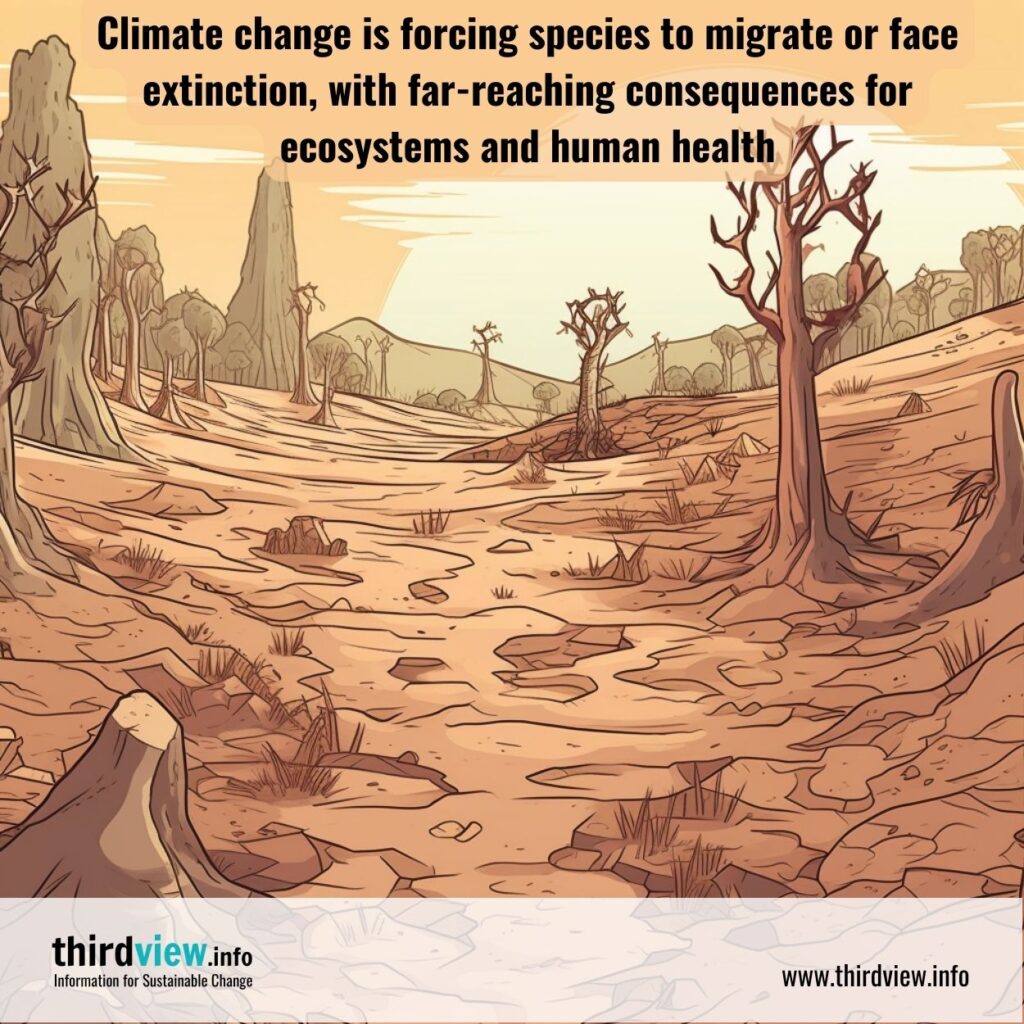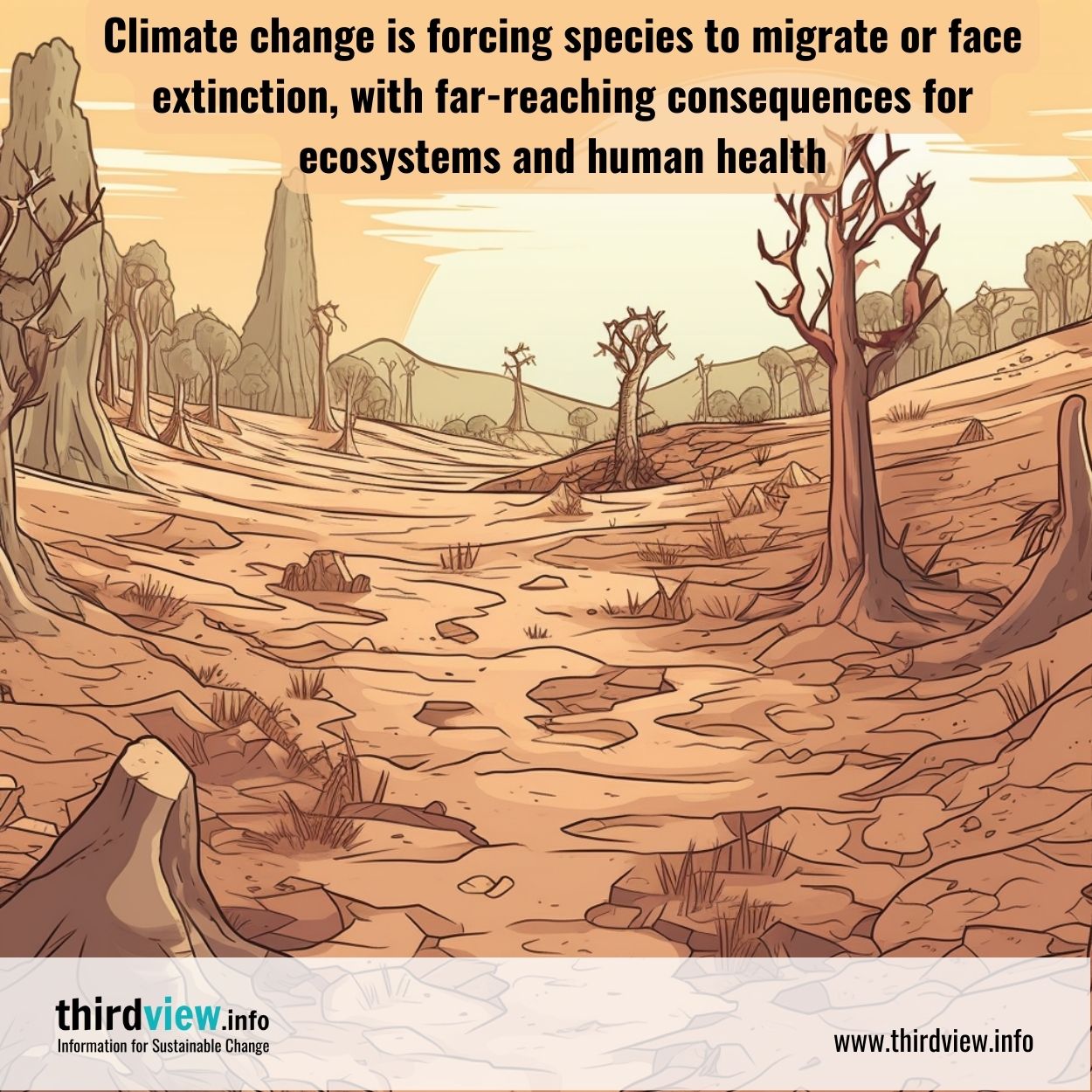Climate change is already having a devastating impact on biodiversity all over the world. As temperatures rise, species are being forced to migrate or face extinction as their habitats become increasingly inhospitable. This loss of biodiversity is a major problem, as it can have far-reaching consequences for ecosystems and human health alike. Let’s take a closer look at how climate change is impacting our planet’s biodiversity.
Species Migration and Extinction
The most obvious way that climate change is affecting biodiversity is by forcing species to migrate in order to find suitable habitats. Many species are unable to migrate quickly enough or far enough to escape the effects of climate change, leading to their extinction. For example, rising sea levels are forcing some coastal species out of their habitats and into unfamiliar territory, where they may not be able to survive due to a lack of food or other resources. Other species may not be able to migrate at all due to human-made barriers such as roads or cities that prevent them from reaching new habitats.
Changes in Ecosystems
The loss of biodiversity caused by climate change has far-reaching consequences for our planet’s ecosystems. When certain species die off or are forced out of an area, it can disrupt the delicate balance between predators and prey, leading to changes in the ecosystem that may be difficult or impossible to reverse. For example, if one species dies off due to climate change, its predators may no longer have food sources and could suffer population declines as a result. This can cause cascading effects throughout the entire ecosystem—for example, if one type of insect dies off due to changes in temperature or rainfall patterns, plants that rely on those insects for pollination could also suffer population declines.
Humans Impacted Too
Finally, it’s important to remember that humans are also impacted by the loss of biodiversity caused by climate change. We rely on healthy ecosystems for food sources such as fish and game animals, materials such as timber and leather, and even medicines derived from plants and animals found in nature. When these ecosystems become disrupted due to climate change-related losses in biodiversity, it can have serious implications for our own health and well-being too.
Climate change is already having a devastating effect on global biodiversity—and this trend will only continue if we don’t take action now. Species across the globe are being forced into unfamiliar areas where they may not be able to survive; entire ecosystems are being disrupted; and humans themselves are feeling the impacts too through reduced access to natural resources such as food sources and medicines derived from nature. The time has come for us all—governments, businesses and individuals alike—to work together towards reducing our carbon emissions before it’s too late.


